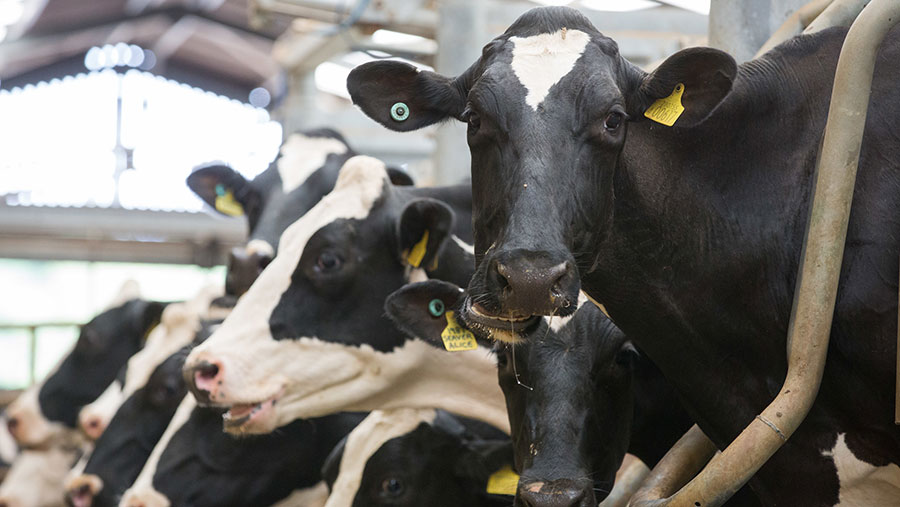63% of dairy farmers not interested in measuring emissions
 © Tim Scrivener
© Tim Scrivener As world leaders meet in Paris for talks on climate change, it’s been revealed that nearly two-thirds of British dairy farmers are not interested in measuring or managing greenhouse gas (GHG) emissions.
This week, 147 world leaders, including Barack Obama, David Cameron, Vladimir Putin and Angela Merkel, join French president Francois Hollande for the United Nations (UN) Conference on Climate Change in Paris.
Last week at the Farmers Club in London, Alltech E-CO2 revealed 69% of dairy farmers surveyed understood GHG emissions would “fairly significantly” affect future generations of dairy farmers.
See also: Carbon footprint assessment forces dairy farmer to focus on improving efficiency
Yet 63% said no when asked if they would like to measure and manage their dairy farm GHG emissions.
The survey of 100 randomly selected British dairy farmers also found:
- 10% believed reducing GHG emissions on farm would increase efficiency and profitability
- However, another 45% believed it would add cost to their businesses
- 22% said they felt under pressure (59% from milk buyers, 23% from government, 14% from supermarkets, and 5% from consumers) to measure and manage their GHG emissions
- 34% felt they had a moral obligation to farm in a more environmentally friendly way
- 33% believed dairy farmers should be left alone as there are “far bigger polluters around”
- 20% said it is important consumers see dairy farmers are taking the issue seriously
Ben Braou, joint business general manager at Alltech E-CO2, said there is a need for greater engagement.
Areas of focus for dairy farmers
(according to Alltech E-CO2)
- Animal health (age at first calving and calving index)
- Feed efficiency
- Forage quality and grazing management
- Environment/housing
“The key message is that farmers understand that emissions and footprinting are important but they don’t really understand the association between monitoring and measuring and what opportunities there are from there – the link between efficiency and profitability and sustainability,” said Mr Braou.
See also: Arla targets carbon footprint to raise efficiency
He attributed the result to “a lack of understanding, a lack of awareness” – adding it may be “generational.”
He said: “A large percentage think it’s going to cost them to carry out and reduce their emissions.
“Whereas we’ve shown there can be a cost benefit and that carbon efficiency is linked to profitability.”
Since 2009, Alltech E-CO2 has seen a reduction of between 5% and 6% in GHG emissions in real terms on farms it has provided advice to.
Animal emissions
Andy Wynne, joint business general manager at Alltech E-CO2, said there remains a “misconception” that fuel and electricity are the main contributor to a farm’s carbon footprint, when in fact the “main proportion” comes from the animals themselves and the feed they are given.
